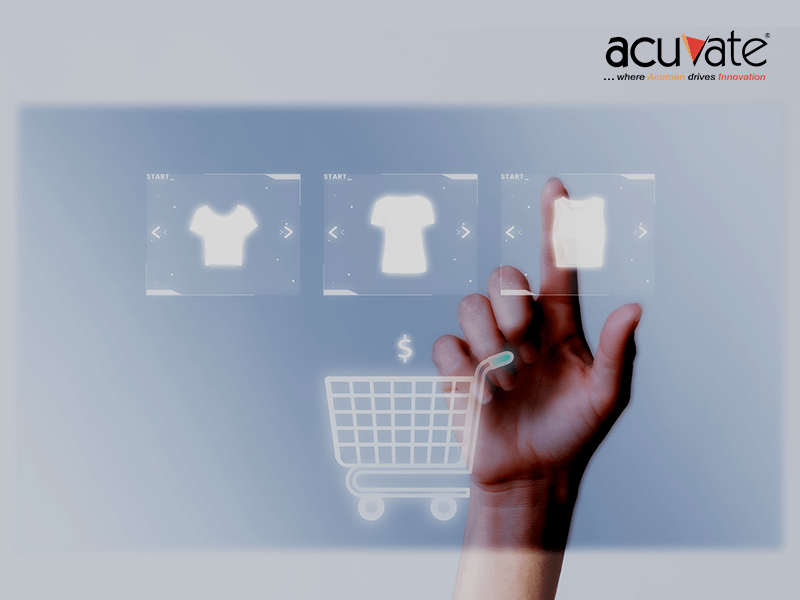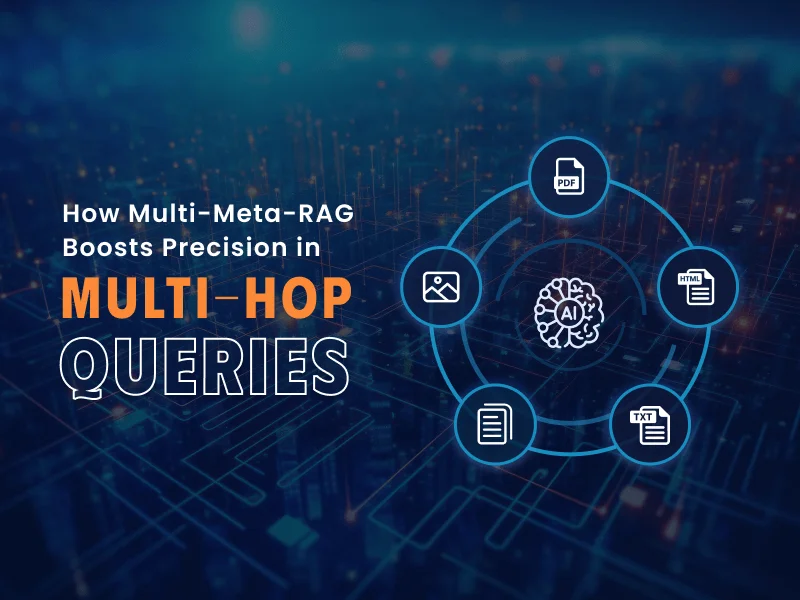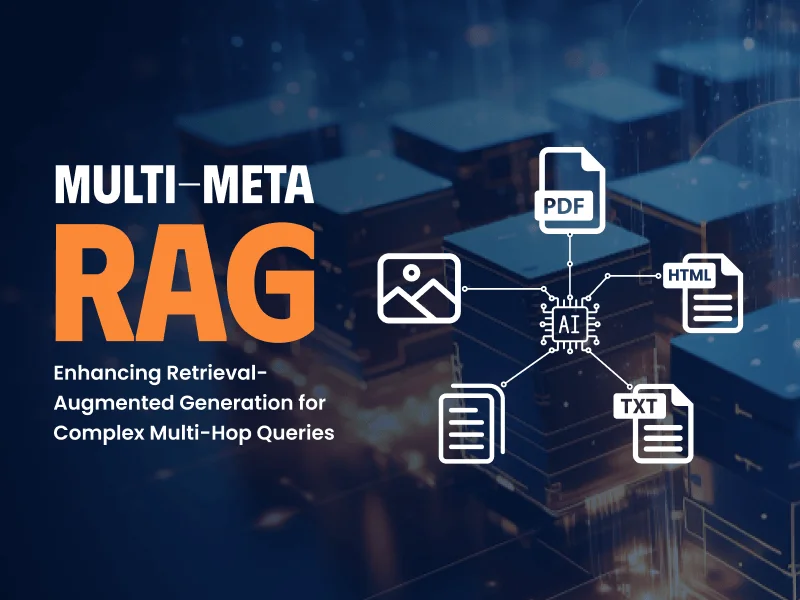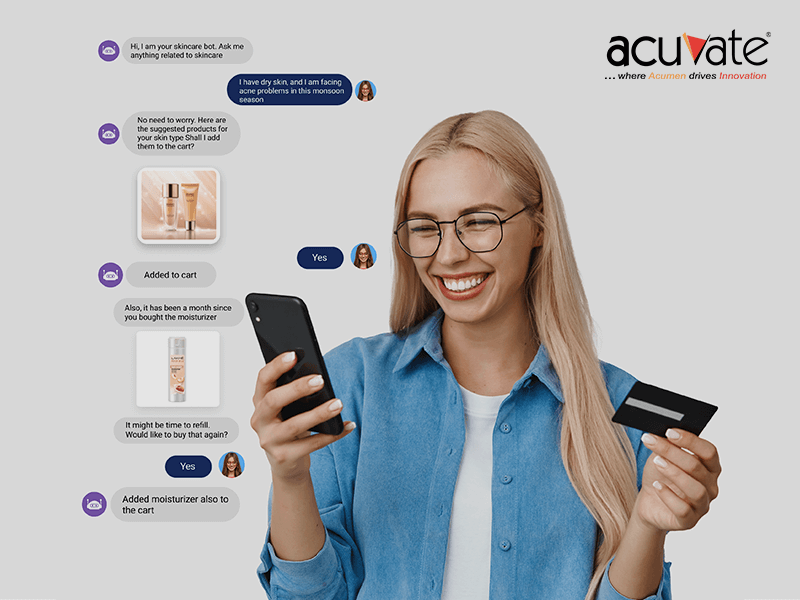The retail industry is constantly undergoing a profound transformation as it continues to embrace the power of technology. This association has been extensively helpful to enhance customer experiences and drive operational efficiency.
In this blog, we will delve into the promising front of GPT (Generative Pre-trained Transformers) and chatbots. Furthermore, we will explore how they are revolutionizing the retail industry. The apparent change includes improving customer service, personalization, optimizing inventory management, and streamlining operations. These benefits showcase that these technologies are swiftly reshaping the way retailers interact with customers and operate their businesses.
Let’s dive deeper into the topic, as we uncover the potential of GPT and chatbots in transforming the future of GPT chatbots retail.
Enhancing Customer Service with GPT-powered Chatbots
Customer service is a critical aspect of the retail industry, and GPT-powered chatbots are emerging as invaluable tools to deliver exceptional customer experiences. These chatbots leverage the power of artificial intelligence and natural language processing to understand and respond to customer inquiries in real-time.
Their ability to study and analyze huge amounts of data and learn from customer interactions has allowed GPT-powered chatbots to offer immense value. This is done by providing personalized recommendations, answering frequently asked questions, resolving customer issues, and assisting with online purchases. Moreover, round-the-clock support and personalized interactions can help retailers provide elevated customer service to their leads, prospects, and customers.
Personalization and Recommendation Engines
Personalization is highly crucial in today’s retail landscape, and GPT-powered chatbots play a crucial role in delivering tailored experiences to customers. These chatbots can generate personalized product recommendations that match individual preferences and needs, by analyzing customer data, purchase history, and browsing behavior.
GPT’s ability to understand the context and generate human-like responses enables chatbots to engage in natural and personalized conversations. This offers to foster a sense of trust and loyalty with customers. Through personalization and recommendation engines, retailers can significantly enhance the customer journey and drive sales.
Inventory Management and Supply Chain Optimization
Efficient inventory management and supply chain optimization are vital for retail success. GPT-powered chatbots can assist retailers in a spectrum of tasks which include monitoring and managing inventory levels, tracking shipments, and analyzing demand patterns.
By leveraging machine learning algorithms and real-time data, these chatbots can forecast demand, identify trends, and provide valuable insights to optimize inventory stocking and supply chain operations. Through greater visibility and streamlined processes, retailers can minimize stockouts, reduce carrying costs, and ensure a seamless flow of products throughout their operations.
Streamlining Operations and Workflow Automation
GPT-powered chatbots are transforming retail operations by streamlining internal processes and automating repetitive tasks. From employee onboarding and training to data entry and reporting, chatbots can handle a wide range of administrative functions, freeing up employees’ time and enabling them to focus on more strategic and value-added activities.
By automating routine tasks, retailers have a high possibility of improving operational efficiency, reducing errors, and enhancing productivity. Chatbots can also facilitate seamless communication and collaboration among teams, ensuring smoother workflows and faster decision-making processes.
Future Possibilities and Continuous Innovation
The future of retail operations with GPT and chatbots is brimming with promises and possibilities. As these technologies continue to evolve and become even more sophisticated in gauging and predicting customer behavior, retailers can offer hyper-personalized experiences.
Additionally, advancements in voice recognition and natural language understanding will make chatbots even more intuitive and capable of providing seamless interactions. The integration of augmented reality (AR) and virtual reality (VR) with chatbots holds the potential to revolutionize the in-store experience, allowing customers to virtually try on products or visualize items in their homes. However, there is also a need for the retail industry to remain agile and embrace continuous innovation and harness the full potential of GPT and chatbots in shaping the future of retail.
Enhanced Customer Experience Across Channels
GPT-powered chatbots enable retailers to provide a seamless and consistent customer experience across multiple channels. Regardless of whether a customer interacts with the chatbot on the website, mobile app, or social media platforms, they can receive the same level of personalized assistance and support.
Furthermore, chatbots can also help in maintaining a comprehensive customer profile, allowing the team to remember past interactions and tailor responses and recommendations accordingly. This omnichannel approach not only enhances the customer experience but also strengthens brand loyalty and increases customer satisfaction.
Data-driven Insights for Business Strategy
The integration of GPT and chatbots in retail operations generate a wealth of valuable data. Retailers can leverage this data to gain deep insights into customer preferences, trends, and purchasing behaviors.
By analyzing the data collected from chatbot interactions, retailers can identify patterns, gauge customer needs, assess buying patterns, craft retail marketing strategies, and make data-driven business decisions. These insights are highly significant for product development, marketing strategies, and inventory management, enabling retailers to stay ahead of the competition and meet customer expectations effectively.
Retail Innovation and Competitive Advantage
The competitive retail landscape requires innovation to be a crucial aspect of staying relevant and gaining a competitive edge. GPT-powered chatbots provide an avenue for retailers to showcase their commitment to innovation and technology adoption. Offering cutting-edge conversational experiences and personalized recommendations has allowed retailers to differentiate themselves from competitors and attract a tech-savvy customer base. The integration of GPT and chatbots not only enhances operational efficiency but also positions retailers as industry leaders in embracing digital transformation.
Collaboration between Humans and Chatbots
While chatbots automate and streamline retail operations, it is essential to emphasize the collaboration between humans and chatbots. Chatbots are designed to augment human capabilities rather than replace them entirely.
Retail employees can work in tandem with chatbots. This is done by leveraging their expertise and data-driven insights to enhance customer interactions. A collaborative approach has allowed retailers to deliver a seamless and personalized customer experience, build stronger customer relationships, increase ROI, and drive business growth.
Ethical Considerations and Customer Trust
As retailers deploy GPT-powered chatbots, ethical considerations become paramount. Some examples of ethical considerations include transparency, privacy, and security in the collection and use of customer data.
Retailers must prioritize customer trust and provide clear guidelines on data usage and protection. A transparent and open-ended communication loop about the chatbot’s involvement in customer interactions can help significantly. It can help in building trust and fosters a positive perception of the brand.
By handling customer data responsibly and addressing potential ethical concerns, retailers can maintain a strong reputation and cultivate long-term customer loyalty.
What we have to say
The future of retail operations is undeniably intertwined with the transformative capabilities of GPT-powered chatbots. Needless to say, the way forward for chatbots for retail stands complementarity with minor human intervention and surveillance.
These advanced technologies can bring endless benefits to the table. Some of these benefits include enhancing customer service, enabling personalization, optimizing inventory management, streamlining operations, and driving business growth.
By embracing the potential of GPT and chatbots, retailers can deliver exceptional customer experiences, gain valuable insights, and stay competitive in the dynamic retail landscape. However, retailers need to approach the integration of chatbots with a human-centric mindset, ensuring collaboration between humans and chatbots and prioritizing ethical considerations. The future of retail operations holds immense opportunities for those who embrace the power of GPT and chatbots, enabling them to thrive in an increasingly digital and customer-centric era.



